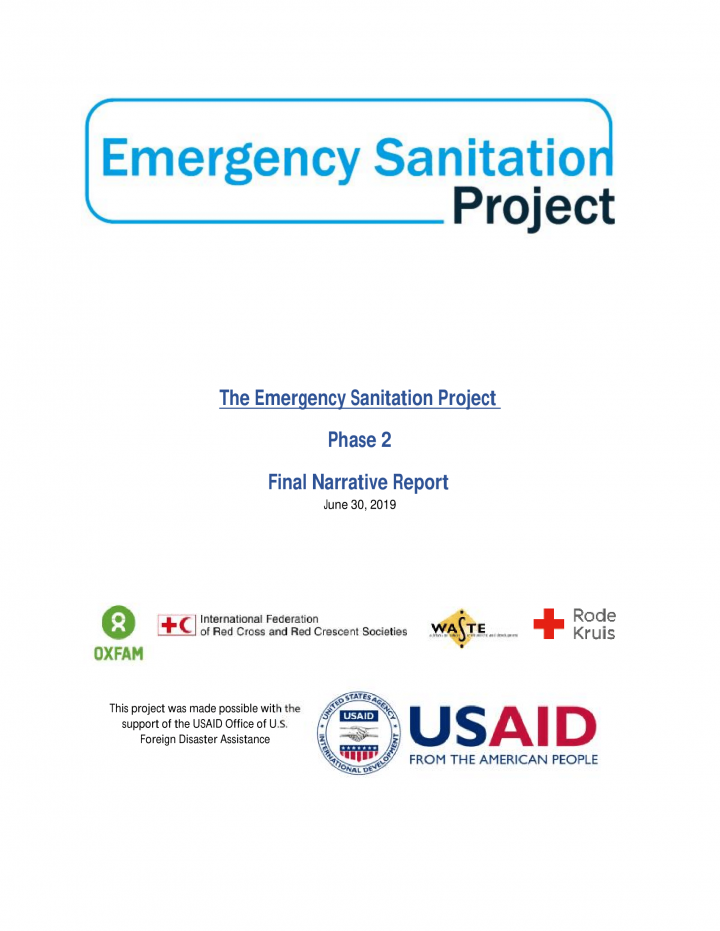The Emergency Sanitation Project - Phase 2 - Final Narrative Report IFRC, WASTE, Oxfam GB, USAID (2019)
With increased urbanization and regulatory scrutiny, the ability of humanitarian agencies to use the simple pit latrine to safely manage human waste in emergencies will decline. When a latrine is not suitable, the response options become exponentially more complicated. Different toilets must be constructed. The contents must then be removed and treated. This is as complicated and expensive as it is important for the health of disaster affected populations.
In those rare instances that humanitarian agencies attempt to address the significant and increasing need to manage faecal waste, the response is usually incomplete. Apart from the later stages of the Bangladesh Population Movement Operation (PMO) in Cox’s Bazaar, Bangladesh Faecal Sludge Management (FSM) is usually limited to collection, desludging and uncontrolled dumping, causing serious environmental and public health risks which increase human suffering and the cost of humanitarian response. Even in the Bangladesh PMO, progress
on FSM was extremely slow with relatively simple options taking months to establish. The WASH sector needs to get better and faster at providing FSM.
The Emergency Sanitation Project seeks to provide the WASH sector with greater access to rapidly deployable equipment, designs and methodologies for the entire FSM chain, from toilet to treatment. The first phase of the ESP tackled a number of challenges in providing sanitation in difficult contexts. Some of those initiatives failed or were resolved. Others showed promise and needed refinement and field testing. In its second phase, the consortium focussed more narrowly on the FSM chain and tried to bring solutions identified in Phase 1 closer to being field ready.
Bibliographic information
IFRC, WASTE, Oxfam GB, USAID (2019). The Emergency Sanitation Project - Phase 2 - Final Narrative Report International Federation of Red Cross and Red Crescent Societies, WASTE, Oxfam GB
Filter / Tags
Faecal sludge treatment processesUrine diversion dehydration toilets (UDDTs) Camps (emergency or longer term)English

